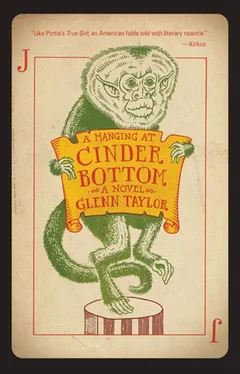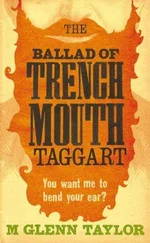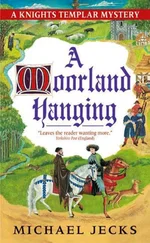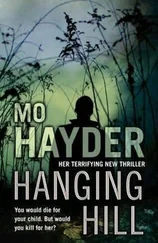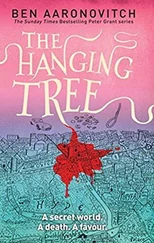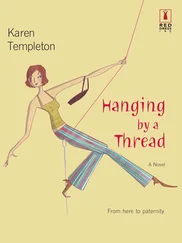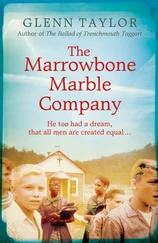Abe studied the tall man’s real eye. “I know you,” he said. “You’re the first fella I met when I came home in April. Believe I gave you a silver dollar.”
The man’s breathing turned quick. He looked to his right at the giant.
“How’s your short friend?” Abe asked him. “One with the titties?”
“Dead,” the man answered, but Abe already knew.
When Harold Beavers had sent no word from Chicago for three days, Rufus tasked the short tittied man to New York, for he was wholly unintimidated by a producer’s lair. But 57 Great Jones Street was no variety theater. In truth, it was home to Little Naples Saloon, and when the short Keystone officer turned up there, having drunk considerable courage to run his mouth, Paul Vaccarelli himself pulled his piece, and he shot the tittied man through the cartilage of his nose.
The glass-eyed man’s tremble had increased and he feared he’d wet his pants. “I’m just a messenger,” he managed. He’d been drunk when he agreed to do it. Rutherford had paid him two fifty-dollar notes.
The lightbulb was hot above them.
Abe said, “You ought to consider how you align yourself in this life. You tell that to Taffy Reed and the other police too.” He folded the letter around the photograph of Sam. He took out his watch. “You tell Rutherford and Rufus Beavers that I will do what’s been asked. But I will come alone.”
“No,” Goldie said. “That’s not right.” Her voice was quiet but sure.
Abe did not look in her direction. He stared hard at the glass eye and said again, “I’ll be traveling alone.”
The man started to speak. He’d been given a script which demanded that both of the accused answer for their crimes. A witness had said with certainty that it was Goldie who’d shot Munchy Briles. Now the man could not remember what he’d rehearsed on the train.
Goldie said, “You tell them all that two of us are coming home.”
Abe looked where she stood. She wore no expression. He remembered what she’d said on the docks. I’ll die at your side just the same as I’ll live. He winked at her and went on. “Tell them we will come with one man watching to be sure they hold up their end. We’ll step off the train when we see Sam step on it, alone.”
The man stood there nodding, his tremble subsiding.
Abe left the office and whistled at the head of the stairs.
When he stepped back inside, another man was with him, the kind who took jobs no one else would touch. “One-Eye,” Abe said, “this is Anchors. He’s going to follow you to the station, ten paces behind the whole way.” Anchors wore a scowl. He’d been too long in the sun. Abe went on. “He totes a police revolver, and if he sees any other with you, he’ll slap it out and lay you down.”
“I come alone,” the tall man said, “all the way.” It was the truth. Keystone could not spare the men.
Abe believed him.
The lightbulb surged. From out on the water, there arose a grinding sound.
Abe called over the man known as Anchors. He slipped him two twenties and whispered in his ear. “Get on that train but don’t let him know it. Follow and watch. You can get you a toothbrush on arrival.”
Anchors put his hands in his pockets and stepped to the tall man’s side.
Abe regarded once more the glass eye, its crude brown paint-job. “Go on,” he said. “You can make the ten o’clock if you trot.”
The tall man started for the door. He’d nearly made it through when he stopped and spoke without turning. “When do I tell em you’ll arrive?” he asked.
Abe worked his jaw. “Tell them we’ll be there at sundown on Sunday. Last train in.”
Goldie listened to their footfalls on the stairs. There was something in the sound of it that recalled her daddy.
Bushels was feeling particularly protective by then. He said, “I was ready to go with you the first time Abe, when you came through in April.” He’d always liked the young man from West Virginia. “I’ll ride in ahead of you, on an earlier train. Lay down some work. We can figure this.”
Goldie moved to the long office wall, where she sat down beneath a square hole. It had once housed Ben Moon’s safe, and a dusty outline of the big portrait remained.
Abe said, “You still keep up with that counterfeiter?”
Bushels said he did.
“You’ll need to call on him.”
Goldie made an airy sound and lay her head back on the wall. How tired she had grown of such games.
Bushels looked at her there, and then at Abe, who regarded the folded letter in his hands. “Abe,” he said. “We need to wire Mr. Moon. We need to work out a plan.”
Abe nodded. He was already thinking on it. The pain in his head was back, but it could not block what he conjured. “I’ll stop at the telegraph office on my way to Tony Thumbs’s.” he said. He hoped the old man would be there. He hoped he wasn’t dead.
Before he left Moon’s office, Abe sat down next to Goldie on the wall. He told her not to fret. He told her they’d make it out of Keystone yet again, alive and free.
She only shook her head. He kissed her on the temple.
He walked up South Street figuring, talking to himself aloud.
Outside Tony Thumbs’s building, he smelled rain. He looked up for night clouds, but there were none. It was only the moon, big as it had been at the Keystone eclipse. The Old Drury’s sign was in need of repair. They’d not run a show in months.
Inside, Abe pounded on Tony’s locked door.
The old man had taken up opium full time since putting his monkey in the ground. There were days when he stayed eight hours inside the stale, cushioned joint on Camel Alley, when the only words he spoke were his order, “Ten fun of the number one.” He grew tired of the walk to and fro, and so he’d bought from the joint’s proprietor his own full layout — skewer, lamp, and pipe. He’d not left his bedroom since.
Tony Thumbs would turn eighty-three on August 21st. He felt no need to leave his little spot above the Drury.
He felt no need to answer when a knock came at his door.
But Abe pounded still, and the ringing in his ears built until it broke, and inside the clamor of his shrill mind, a quiet place came forth, like the one he and Jake had once known. And inside the quiet place, he could not hear the pounding of his very own fist, even as he watched it knock. He heard instead the pulse of his blood. He shut his eyes and saw Sam, his empty lips and crushed nose.
His knees nearly gave, but he neither fell nor hit his head. He sat down on his heels and breathed deep. He thought of the last time he’d seen Jake, his purpled neck and motionless eyes beneath the lids. He thought of Sam’s face in the photograph.
There is nothing without family. There is nothing without one, two, three.
Abe needed the old man and his miracle cures.
He stood up and kicked down the door.
August 21, 1910
At a minute past midnight, Ah Tong tossed the pebble. It was wrapped in a sheet of paper. He’d listened from the alley for Abe’s whistle, then come closer to hear what Goldie hummed. When the perimeter guards moved to the jailhouse’s opposite side and she still hummed All clear , Tong ran up and tossed the pebble through the high window bars.
Abe took it up from the floor just as the officer on hall guard stirred awake. He sat in a spindle-back chair just outside cell one.
“You dozin One-Eye?” Abe said. He held the pebble note in his fist.
The tall man took out his watch. His shift was done. “I’m going home to bed is what I’m doin,” he said. He sometimes felt he was living under a curse, one put upon him by Abe back in April, one transmitted by way of that Morgan dollar. He put his fingers in his ears and shut his eyes and waited.
Читать дальше
Конец ознакомительного отрывка
Купить книгу
